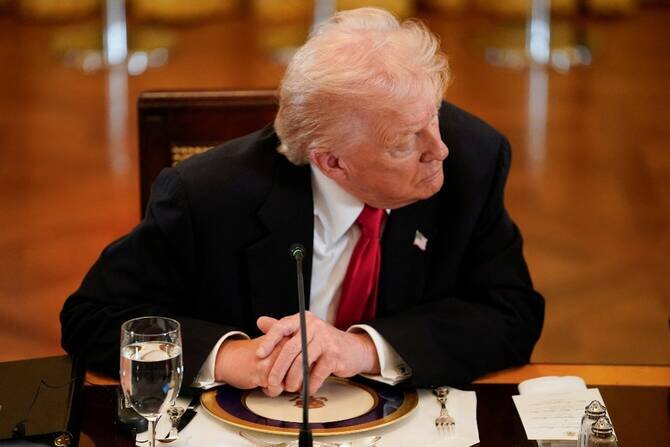
US officials and NGOs condemn Washington's boycott of UN rights review
The US has become only the second country to ever skip its Universal Periodic Review, prompting concerns over human rights under President Donald Trump's administration.
GENEVA: The United Nations in Geneva hosted discussions on Friday regarding human rights under President Donald Trump’s administration, with US officials and rights defenders voicing their concerns over Washington’s decision to boycott the review of its record.
The US mission in Geneva confirmed that the country would skip its Universal Periodic Review (UPR), following an initial announcement in August, making it only the second country to ever opt out of the process.
All 193 United Nations member states are subject to a review of their human rights situations every four to five years.
The decision not to participate has been described as ‘deeply disappointing’ by Uzra Zeya, head of Human Rights First.
She believes that this sends the wrong message and weakens a process which has contributed to advancements in human rights worldwide, including within the United States.
US officials and activists gathered at various events organized at the UN in Geneva to discuss concerns around rights in the US, particularly since Trump returned to power in January.
The decision by the US to abstain from its review is linked to Trump’s order in February to withdraw the country from numerous UN bodies, including participation in the Human Rights Council.
However, this was not an automatic withdrawal.
During his first term, Trump withdrew from the council but still opted for the US to participate in its 2020 review.
The US has repeatedly criticized the council for perceived anti-Israeli bias and cited this as a reason for its withdrawal from the review.
Critics of the move have argued that it undermines international human rights norms, with Phil Lynch, head of the International Service for Human Rights, noting that ‘the notion that international human rights law is inalienable and applies equally to all’ has been weakened.
A former senior US official expressed disappointment over the decision, calling it both tragic and ironic given the country's role in shaping these norms.
The absence of the US at its review has drawn ire from civil society groups who typically participate to provide analysis and recommendations.
Despite not having a platform, these groups have continued to voice their concerns regarding developments such as the suppression of dissent, immigration crackdowns, and other issues.
Many are calling on the international community to speak out against human rights abuses within the US.
The country’s decision has set a precedent with only Israel previously choosing not to participate in its review.
The US mission in Geneva confirmed that the country would skip its Universal Periodic Review (UPR), following an initial announcement in August, making it only the second country to ever opt out of the process.
All 193 United Nations member states are subject to a review of their human rights situations every four to five years.
The decision not to participate has been described as ‘deeply disappointing’ by Uzra Zeya, head of Human Rights First.
She believes that this sends the wrong message and weakens a process which has contributed to advancements in human rights worldwide, including within the United States.
US officials and activists gathered at various events organized at the UN in Geneva to discuss concerns around rights in the US, particularly since Trump returned to power in January.
The decision by the US to abstain from its review is linked to Trump’s order in February to withdraw the country from numerous UN bodies, including participation in the Human Rights Council.
However, this was not an automatic withdrawal.
During his first term, Trump withdrew from the council but still opted for the US to participate in its 2020 review.
The US has repeatedly criticized the council for perceived anti-Israeli bias and cited this as a reason for its withdrawal from the review.
Critics of the move have argued that it undermines international human rights norms, with Phil Lynch, head of the International Service for Human Rights, noting that ‘the notion that international human rights law is inalienable and applies equally to all’ has been weakened.
A former senior US official expressed disappointment over the decision, calling it both tragic and ironic given the country's role in shaping these norms.
The absence of the US at its review has drawn ire from civil society groups who typically participate to provide analysis and recommendations.
Despite not having a platform, these groups have continued to voice their concerns regarding developments such as the suppression of dissent, immigration crackdowns, and other issues.
Many are calling on the international community to speak out against human rights abuses within the US.
The country’s decision has set a precedent with only Israel previously choosing not to participate in its review.